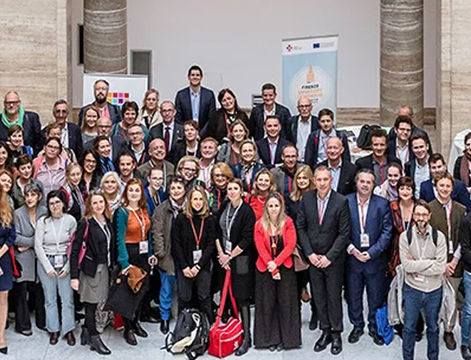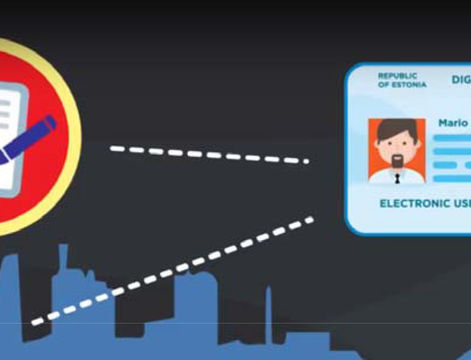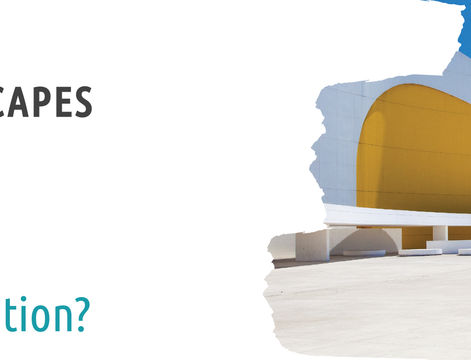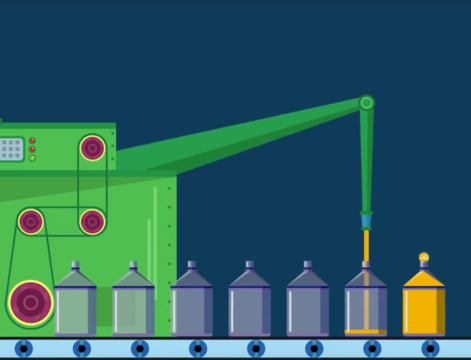
SPEED UP partners sign the SPEED UP Start Up Pass!
SPEED UP partners sign the SPEED UP Start Up Pass, a memorandum of understanding that will allow the cooperation beyond project’s lifetime!
The overall objective of the project is to trigger policy change in the partners' regions improving the implementation of the policy instruments under Structural Funds programmes dedicated to support of entrepreneurship, in particular concerning business incubation. The policy instruments tackled by the project are the ERDF Operational Programmes at regional or national level enabling the creation of new companies through business incubators. Policy change in the partners’ regions will occur through a collective multidimensional and dynamic learning process at policy level and involve, along to the partner organizations, relevant stakeholders of the concerned policy subsystems. Learning will deal with the exchange of experiences on the ways the partners support their business incubators, benchmarking their own experiences against those of their peers and learn from them about what works and what doesn't in different contexts. It will inform policy and practice in the involved regions by developing common ownership of the good practices to be adopted by the partners and ensure that its qualitative outreach inform the Action Plans and influence the nature and scope of the policy change to be achieved. The sub-objective is to contribute to capacity building and policy learning in the partners’ regions by supporting exchange of experience among relevant stakeholders, in order to:
The partnership brings together city administrations, regional development agencies, chambers of commerce with a balanced mix between more and less developed regions.
€1,797,324.00
SME competitiveness
The ERDF ROP contributes to achieving the Europe 2020 targets for smart, sustainable and inclusive growth by concentrating resources in research and development, innovation, ICT, support to SMEs and energy efficiency. The measure concerned by the project is the Action 3.5.1 aiming to promote entrepreneurship by facilitating the economic exploitation of new ideas and promoting the creation of new enterprises, also through business incubators. The action will accompany the creation of new companies operating in industry, tourism, trade, culture and service sectors. The decision to activate this action was adopted to overcome the negative trends on the creation of new companies which has led to a substantial reduction in employees mainly in the manufacturing sector and reduced significantly the production base. This implies the implementation of measures to increase the dynamism of the productive system by promoting entrepreneurship in sectors and technologies identified by the regional S3. In this context, the Region intends to encourage the creation of new businesses that, beyond helping to stem the employment problems, are able to boost the competitiveness of the business fabric. Among the expected results to be achieved is the establishment of new manufacturing enterprises in both emerging and traditional sectors with market potential favoring businesses created by youth, women and workers assisted by unemployment benefits.
The OP will contribute to promoting the competitiveness of the regional economy and the region's sustainable development and internal cohesion, as well as the region's contribution to the achievement of the key EU and national development goals. The support of this policy instrument within the project falls under the Priority axis No. 03- Strengthening of the competitiveness of small and medium-sized enterprises, Framework for priority investment No 3a - Promotion of entrepreneurship in particular by facilitating support for economic exploitation of new ideas and encouraging the creation of new businesses, including through business incubators.
The OP allocates more than 32% of the resources to enhance the competitiveness of SMEs. One of the main means of the ROP to promote entrepreneurship relies on the support to a qualified and creative entrepreneurship, with a priority for young people and unemployed adults. The ROP encourages qualified entrepreneurship, the spin off and consolidation of high tech companies by taking advantage of the human capital of the region. It addresses the poor survival rate of business associated initiatives, the weaknesses in terms of management and organizational skills of the companies and the reduced networking and qualification of incubation infrastructure.
The policy instrument addressed is the ERDF ROP Brandenburg 2014-2020, in particular referring to the Priority axis 2: Strengthening the competitiveness of SMEs (SFC 2.A.1.) - Investment priority 3a) Promotion of entrepreneurial spirit, especially the facilitation of economic benefits of innovative ideas and promotion of start-ups, also by business incubators (SFC 2.A.4) Action 5: Support of start-ups and the creation of innovative young enterprises . This policy instrument aims to foster the promotion of incubators and the entrepreneurial spirit, especially focusing on innovative start-ups. Main objective of the policy instrument is to raise the number of innovative start-ups within two years after company foundation and to facilitate company succession in the innovation sector. The improvement of the policy instrument is necessary to strengthen the competitiveness and the attractiveness of the state of Brandenburg. These are the main factors for job creation and to generate a structural change. Brandenburg’s incubators are important actors to promote entrepreneurship in the innovation sector. Through the project we envisage a trans-European learning process to improve the effectiveness of their support services, a better linkage to the RIS 3, the creation of innovative companies connected to research and young people’s creativity.
The ERDF ROP 2014-2020 aims to boost economic growth in the region and to contribute to achieving the Europe 2020 targets for smart, sustainable and inclusive growth. Through investments that will support the knowledge economy, SMEs and the transition towards a low carbon economy, It should create jobs and boost productivity. Major financial effort, namely 90% of the total allocation, goes to RTD, SMEs and low-carbon economy.
The policy instrument chosen is the Spec. objective 2.1.2: Promoting a business-friendly environment at local and provincial level dealign with the OT3 -Enhancing the competitiveness of SMEs. This policy instrument aims to stimulate a business-friendly environment through better government policy and provision of services at local and provincial level, in response to the needs of businesses. Local and provincial governments need to be aware of the positive/negative impact they have on the business-environment, and should – within their competencies – facilitate entrepreneurship through concrete actions, such as: - improving the administrative and content related service level towards SME’s and startups: - facilitating new businesses in their search for an ideal location, possibly providing city managed locations; - facilitating e-business and tech startup development through open digital platforms; - cocreating innovation projects through e-tendering procedures, pre-commercial procurement trajectories and the outsourcing of city development programmes.
The policy instrument is Axis 1 of ERDF ROP, entitled “Enhancing the regional economic development through support to competitiveness of enterprises”. More specifically, the policy instrument will focus on ERDF actions on the development of innovative projects and on the support to the creation of new businesses. This topic matches the Reims Metropole’s objectives to further develop entrepreneurship and creative emulation on its territory. It indeed integrates:
A) Supporting companies in order to increase the number of innovative projects (Actions 1.2 of ROP). The Territorial Diagnosis pointed out the need to support even more the small enterprises in their innovative development through assistance or coaching in project engineering, financial support, etc. The action 1.2.3 of ROP aims at supporting the mechanisms for technical or financial support to creation and incubation of innovative enterprises. The action 1.2.4 aims at supporting the SMEs in the different phases of their innovative project.
B) Supporting the creation of new businesses (Action 1.3.1 of ROP). In Champagne-Ardenne, the new businesses creation rate is among the lowest in France. The rate in the urban area of Reims is slightly above average. Nevertheless, the survival rate of the businesses is a concern for all the actors in the region: this is reason for improvement to be achieved through the help to new entrepreneurs through incubators and other types of facilities solutions for businesses.
The region of Andalusia has important gaps on entrepreneurship capacity and in the coverage of basic services and infrastructures to support entrepreneurs in their first steps. These gaps, in addition to the deficiencies on business services and a weak economic tissue -lower weight of private sector than in the EU- make the support to business services and infrastructures for entrepreneurs to be essential. The strategy designed in Andalusia through its ERDF OP 2014-2020, includes the following measures under Thematic Objective 3 (TO3), based on improving competitiveness of SMEs: -Promoting entrepreneurial spirit and the creation of new companies, including the use of business incubators and boost the network of advanced incubators, not only for managing new ideas, but also for consolidating the business plans. -Support entrepreneurs by means of integral support systems until the consolidation of the business initiatives, promoting and improving the use of existing infrastructures in urban areas, such as business incubators, and increase the number and quality of the advanced entrepreneurship services; -Promoting business cooperation under a multi-stakeholder model (SMEs, self-employees, techno centers, Universities…) that may improve companies’ networking, innovation and technology transfer, the concentration of companies in business incubators and enhancing business associations, including multi-sector associations and cooperation linked to new business activities.
The action falls under the ROP Priority Axis III: improved conditions for development of SMEs (Investment priority 3a: Entrepreneurship promotion, in particular, throughout facilitation of economic exploitation of new ideas and promotion of creation of new companies - also through business incubators) in terms of the following kind of projects: Provision of support in the initial phase of enterprises’ development; Support in terms of running a business as well as its further development; Integration of business incubation services in terms of creation of new diversified offer, which includes product’s development, access to the capital and specialised consultancy for SMEs (e.g. innovation brokers, platforms of cooperation). The City of Warsaw is constantly developing and improving services provided to the entrepreneurs. In 2013 Smolna Centre for Entrepreneurship (SCE) was opened. It plays a role of a business incubator and an information hub for entrepreneurs and those who are planning to set up their own business. The cooperation within the SPEED UP project represents an opportunity to develop and supplement SCE offer with smart solutions and esure its financial viability. The City believes that, thanks to the policy learning and capacity building activities developed, it can get inspirations and advices from more experienced cities/regions to improve the conditions enabling entrepreneurship, in particular among young people and women.
Within the OP Cohesion Policy Funds 2014 - 2020, the project will tackle Startup Estonia (SUE), a government policy managed by the Estonian Development Fund (EDF) and financed through the ERDF. Aim of the SUE program is to give a boost to the development of Estonian startups ecosystem and therefore launch different activities to support the emergence and development of startup companies as well as improve their accessibility. According to EDF there are around 350 startups in Estonia, whereas by 2020 we expect it to have reached 1000 units. Startup Estonia will invest into 100 startups and expect 5 of these to achieve global success. The measurable indicators will be the following: number of participants, feedback from the participants, cost of the programme, duration and number or services per participant. The participants can be either individuals, teams or startups. The indicators will be used to evaluate the effectiveness inside the programs and among programs. The programs will be evaluated directly after the end of the programme and give input for the development of the programs. EDF will find best partners for the pre-startup and startup phase programs who will offer services for the startups, prepare them for investment and invest into the most potential ones in order to keep the companies in Estonia for longer time and raise the possibility for startups staying here for longer. The aim is also to become a well-know startup centre in Baltics and Nordics.

SPEED UP partners sign the SPEED UP Start Up Pass, a memorandum of understanding that will allow the cooperation beyond project’s lifetime!

SPEED UP Public Event was organised in the framework of EUROCITIES Economic Development Forum

Video interviews "HOW IT WORKS"

Enrico Pandian, the founder of Supermercato24, will talk about his experience and to inaugurate the new chapter StartupGrind Florene

The EUROCITIES Economic Development Forum meeting is taking place in Florence on 27-29 March 2019.

e-Residency is a government issued digital identity that empowers entrepreneurs to set up and run a location-independent business

Presentation of selected entrepreneurship communities at Palazzo Vecchio - Florence
Development of monitoring systems within the incubators

Do you have an innovative, user-centred and design-driven idea that will help to tackle challenges of the growing urbanisation?

SPEED UP ANIMATED SERIE